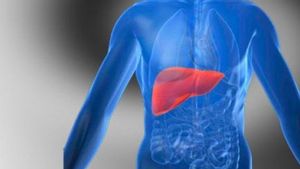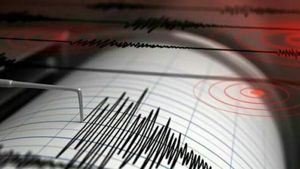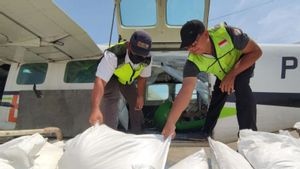JAKARTA - The Director of Postgraduate Program at YARSI University, Prof. Tjandra Yoga Aditama, said that the number of cases of acute hepatitis in children was not comparable to COVID-19 based on observations of the situation in the past month in a number of countries.
"Of course, one disease cannot be compared with other diseases, there are many different factors that influence it," said Tjandra Yoga Aditama, who was confirmed in Jakarta, Antara, Thursday, May 12.
COVID-19 was first detected by the World Health Organization (WHO) on December 31, 2019, with the name at that time pneumonia of unknown cause.
One month later, said Tjandra, on January 30, 2020, WHO declared it a Public Health Emergency of International Concern (PHEIC).
According to the rules of the International Health Regulation (IHR), said Tjandra, on January 30, 2020 or a month after being detected, 19,961 suspected and confirmed cases emerged.
"There has also been evidence of human-to-human transmission. Then, because the case continues to grow with various dimensions, on March 11, 2020, COVID-19 was declared a pandemic by WHO," he said.
Tjandra, who is also the former Director of Infectious Diseases of WHO Southeast Asia, compared this with a mysterious hepatitis case that some people fear will develop into a pandemic.
"Acute hepatitis of unknown aetiology is a similar term to pneumonia of unknown cause in early January 2020 for COVID-19, which was detected by WHO on April 5, 2022," he said.
After more than a month running, said Tjandra, the number of probable cases in the world is around 300 patients. Data until May 10, 2022 in the world recorded 348 probable cases from 21 countries and 26 cases of which require a liver transplant.
"On the other hand, there is also no clear information about the presence or absence of human-to-human transmission. Of course, until now this severe acute hepatitis has not been declared as PHEIC, because it still requires clearer scientific data," he said.
VOIR éGALEMENT:
Although COVID-19 and acute hepatitis cannot be directly compared, said Tjandra, the situation of cases within a month after being discovered showed a different number of cases.
Tjandra reminded all parties to be fully alert and take adequate anticipation.
"Don't ignore it, but also don't panic. Take countermeasures in line with the development of existing science and give a thorough explanation to the wider community," he said.
The English, Chinese, Japanese, Arabic, and French versions are automatically generated by the AI. So there may still be inaccuracies in translating, please always see Indonesian as our main language. (system supported by DigitalSiber.id)


















